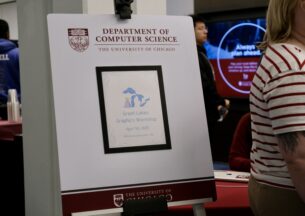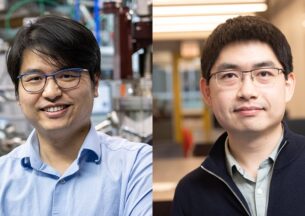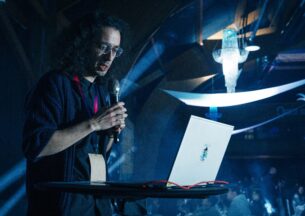Reid McIlroy-Young (Harvard) - Bridging the Gap Between Artificial and Human Intelligence
Abstract: The Dartmouth Workshop formalized the goals of Artificial Intelligence (AI) in 1956 and in the following half century many of the goals have been achieved. We have learning algorithms that can surpass human skill level on a variety of tasks, from language comprehension to image recognition and game playing. These AI systems excel at solving well-prescribed problems. But, those that are vaguely defined, such as ‘pick the best job candidate’ or ‘teach me to play chess’ still prove to be challenging to state of the art AI systems. To bridge this gap we need to build from both sides—create AI systems that are more useful to humans, and improve AI systems to solve problems that people want solved. In this talk I will discuss my work on both these themes, starting with how large language models (LLMs) struggle to interpret text in ways that are intuitive for humans, along with my recent work on solving this problem. I will then discuss my work using chess as a model system, on making superhuman AI systems that are understandable to humans, so they can act as partners or teachers. Finally, I will discuss how this work informs broader analysis of AI’s impacts on an increasingly technical society.
Speakers

Reid McIlroy-Young
Reid McIlroy-Young is a Postdoctoral Fellow at the Hire Aspirations Institute and the Theory of Computation group at the Harvard John A. Paulson School of Engineering and Applied Sciences. Reid works on building AI systems that can understand people, and on bringing insights from human problem solving to AI systems. Reid’s postdoc focuses on building AI systems to produce fairer outcomes in hiring decisions. Reid has a PhD from the University of Toronto in Computer Science, where he was also a fellow at the Schwartz Reisman Institute for Technology and Society. Reid’s research explores how to make machine learning systems that can collaborate with humans and their implications for society. Reid is also known for the creation of Maia Chess; a set of human-like chess engines.












